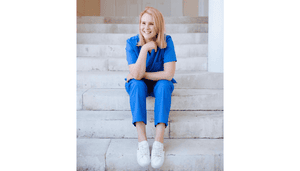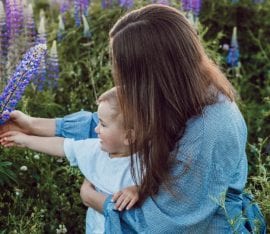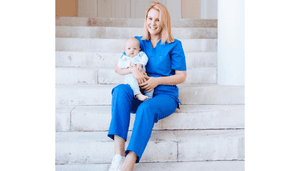Did you know mama, women are most fertile and therefore have the best chance of getting pregnant in their 20s? That being said, there technically is no “best age” to have a baby, that depends on your own personal circumstances and your readiness to be a parent. However, if you are over a certain age you can be classed as having a geriatric pregnancy. But what does this mean? How could it impact my pregnancy journey? Keep reading to find out!
What Is Geriatric Pregnancy?
Geriatric pregnancy is an old term, used to refer to mamas over the age of 35. In more recent years, the term you might hear your health care professionals use is ‘Advanced Maternal Age’ (AMA). In 2020, in England and Wales the average age of mother’s giving birth to their first child was 29.1 years This age has continuously risen over the past 50 years, where the average age was just 23.7 in 1970. In the US, the numbers are slightly lower, with the average age being 26, up from 21. Although these are not geriatric pregnancies yet, the average age of pregnant women is definitely on the rise, despite the fertility rate in the UK dropping.

Why Are People Having Children Later In Life?
There a number of reasons why people are having children later in life:
- Assisted Conception:
Between 1991 and 2016, birth rates from IVF (in vitro fertilisation) increased by more than 85%, with around three-fifths of women who use the treatment being 35 or over. This assisted conception allows families past the ‘prime fertilisation’ age to conceive.
- More opportunities for women
Gynaecologist Penelope Law, once said “The best form of contraception is aspiration”. With the rise in equality for women’s rights to education and work, more women in their twenties are much more likely to prioritise other aspects to life, other than growing a family.
- Access to contraception
Young women are much more likely to have access to contraception, from the pill to the injection, and access to sex education, the rates of unexpected pregnancies have fallen, allowing families to have more control over when they want to begin their family.
What To Expect With A Geriatric Pregnancy?
Regardless of your age, all pregnancies come with a certain amount of risks, however the possibility of complications is higher when you’re older and have a geriatric pregnancy. This is because the eggs you’re born with, are the same eggs you’ll have for your entire life. As you get older, so do the eggs, leading to a higher chance of abnormalities later in life. Some risks can include:
- Premature birth
- Low birth weight in the baby
- Miscarriage
- Stillbirth
- Chromosomal abnormalities
- Birth defects
- Labour complications, such as early labour
- Caesarean delivery
- Preeclampsia, a serious form of high blood pressure
- Gestational diabetes
- Multiple pregnancies, such as twins or triplets

What Differences In My Pregnancy Journey Can I Expect With A Geriatric Pregnancy?
It’s likely that you will receive extra monitoring throughout your pregnancy, to ensure that yourself and your little one is safe and healthy. It is recommended that you notify your health care providers including midwifes and health visitors as soon as they can, so they can give you the most appropriate advice to support your 9 month stretch.
How Can I Increase My Chances Of Having A Healthy Pregnancy And Baby?
If you are a geriatric mother or you are planning to have children a little later in life, there are lots of ways you can support your pregnancy including:
- Preconception Check-up: Helps to identify any pre-existing conditions and ensures they are safely managed
- Healthy diet: Eating a healthy and well-balanced diet, including foods rich in folic acid and other vital vitamins helps the mother’s overall health and wellness.
- Staying active: Helps the mother’s health overall. By including pelvic floor muscles in your regime you can help a weak bladder post-partum.
- Focusing on your mental health: Reducing stress has many health benefits for both mother and baby, try pregnancy yoga or meditation.
- Sleeping well: Getting a good sleep is a great way to help reduce stress and increase stamina, check out our top tips for getting a good nights sleep whilst pregnant here.
Challenging The Stigma Around Geriatric Pregnancies
The bottom line is that the maternal age is changing. Negative stigmas towards geriatric pregnancy are being challenged by the growing birth trend of mother’s conceiving and giving birth at an older age. All pregnancies carry a certain amount of risk and the amazing technology in fertility treatment is paving the way for more mothers, whatever their age to deliver to full term.
Shop Our Trimester 1 Essentials
Breastfeeding mama? Take a look at our breastfeeding FAQs here!







